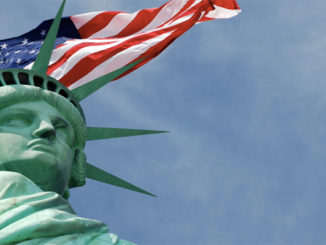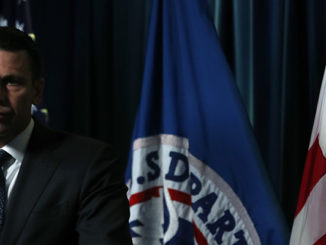
by Alex Gonzalez
Classical economists, found it impossible to understand politics without economics, or economics without politics. The two fields are different, but they are also intimately linked. Perhaps this is why some Republicans fear that if 12 Million Undocumented people were given a guest-worker path that would ultimately lead to a path citizenship, they will vote Democrat. Businesses also fear that guest-workers, with similar rights to citizens and Legal Permanent residents, will hike up wages. Hence, they proposed only a 60% wage cap for guest-workers performing the same type of jobs that citizens do. Many seem to forget that it was innovation, a free labor force and competition, that made this county great. The father of capitalism, Adam Smith understood that you cannot place a worker in bondage and expect innovation. Thus, a “rational” Capitalist economy requires that businesses and workers be free agents in order for industries to have free range on creativity for workers to compete and thereby foster innovation.
Adam Smith understood that while an efficient market would emerge from individual choices, those choices were framed by the political system in which they were made and…each dependent on the other for its existence. Naturally politics will be part and necessary for an immigration bill that fosters a good law for the land, and for businesses. Unfortunately, we currently have a liberal president who creates jobs with government Keynesian policies that have created stagnation in the last four years. Also, In 2012, the number of Americans on food-stamps soared to 70% since 2008 to a record 47 million; but placing a cap on labor wages and for people who want to work, this is not a viable solution.
On the other hand, there are businesses who presume that the best way to keep wages low is by subjecting future foreign workers to a “Congressional” rule, or bondage, where guest-workers can only earn 60% of what their citizen counterparts earn. But ask yourself, why would a worker be a high producer when his salary is capped at 60%? This defies any “rational” Capitalism system because it is a disincentive for workers who are efficient while they earn less; especially such industries where immigrants make about 70% or more of the labor pool. Thus, capping the wage of guest-worker deprives the market from innovation since businesses do not have to offer better working condition and innovation that normally comes through worker competitiveness.
 Adam Smith’s, The Wealth of a Nation concept was very simple. Every man must be free to pursue his own interests and to compete with other men, as long no laws are violated. As each person pursues their own individual self-interests, they serve the interest of society. Also, neither government nor guilds should restrict the economic activities of the individuals. Freed from government interference, economic self-interests creates a natural economic order which produces the positive results for the state, society, and the individuals—self-interest is beneficial for everybody, according to Smith. More importantly, Smith believed that men have an innate moral compass, which restricts their selfish tendencies to be unfair in their business dealings simply because this would cause a conflict on any future dealings with the persons in their business dealings, thereby men adhered to a particular moral code of fairness. This was sufficient to replace any law created by man, in Smith’s concept of Theory of Moral Sentiments. As a result, when you are restricting guest-workers worker to a legal 60% wage limits against a citizens, you are effectively altering economic growth and innovation with government interference. This also contradicts the natural laws that also operate in the market, competitions
Adam Smith’s, The Wealth of a Nation concept was very simple. Every man must be free to pursue his own interests and to compete with other men, as long no laws are violated. As each person pursues their own individual self-interests, they serve the interest of society. Also, neither government nor guilds should restrict the economic activities of the individuals. Freed from government interference, economic self-interests creates a natural economic order which produces the positive results for the state, society, and the individuals—self-interest is beneficial for everybody, according to Smith. More importantly, Smith believed that men have an innate moral compass, which restricts their selfish tendencies to be unfair in their business dealings simply because this would cause a conflict on any future dealings with the persons in their business dealings, thereby men adhered to a particular moral code of fairness. This was sufficient to replace any law created by man, in Smith’s concept of Theory of Moral Sentiments. As a result, when you are restricting guest-workers worker to a legal 60% wage limits against a citizens, you are effectively altering economic growth and innovation with government interference. This also contradicts the natural laws that also operate in the market, competitions
Smith argued that within the set of natural laws of competitions consumers’ sovereignty creates competition that leads to self-regulation. The market is self-regulating depending on consumer demand and supply, bought and sold. The market is the principal regulator and it replaces government regulations. An efficient market produces good consumers who want goods, and competition is the Invisible Hand or the moral sentiment naturally regulating man. Therefore, the free market and competition is King in regulating wages base on supply and demand, not Congress.
Those who propose putting restrictions on guest-workers—as it relates to wages– argue that a complete absence of government is the solution to economic woes. Thus, wage restrictions are an oxymoron argument since it lessens the ability for workers to be free and to make choices and it discourage them from working hard.
And this argument is similar to Max Webber’s The Protestant Ethic and the Spirit of Capitalism. Webber believed that for Protestants, the “calling” is not a condition in which an individual is born, but an strenuous and exiting enterprise to be chosen by himself. Business, considered a vice for many, takes sanctity in Calvinist theology, and “Labor is not merely an economic means: it is a spiritual end.” These religious views are essential to spring rational organizational labor. Weber points out that there are notable differences between social conservative catholic labor, and the protestant communities because “There was a natural “inaptness” in the catholic communities, whereas, the protestant, the greater their zeal, the grater their inclination to trade and industry. Therefore, “a rational systematic, and specialized pursued of science, with trained and specialized personnel, has only existed in the west…. As is true of all modern states of the economic life of the West”–an efficient centralized bureaucracy.
So while Republicans and Democrats await the final deal between the U.S. Chamber and Commerce representing businesses, and the AFL-CIO representing unions, let’s hope that the final deal does not place so much limitation on workers that will jeopardize a free labor pool and the Spirit of Capitalism that both Smith and Webber saw as the engine of our economy and innovation. Let competition, Invisible Hand, be the ultimate regulator of wages.
Alex Gonzalez is a political Analyst and Political Director for Latinos Ready To Vote. Comments to [email protected] or @AlexGonzTXCA



